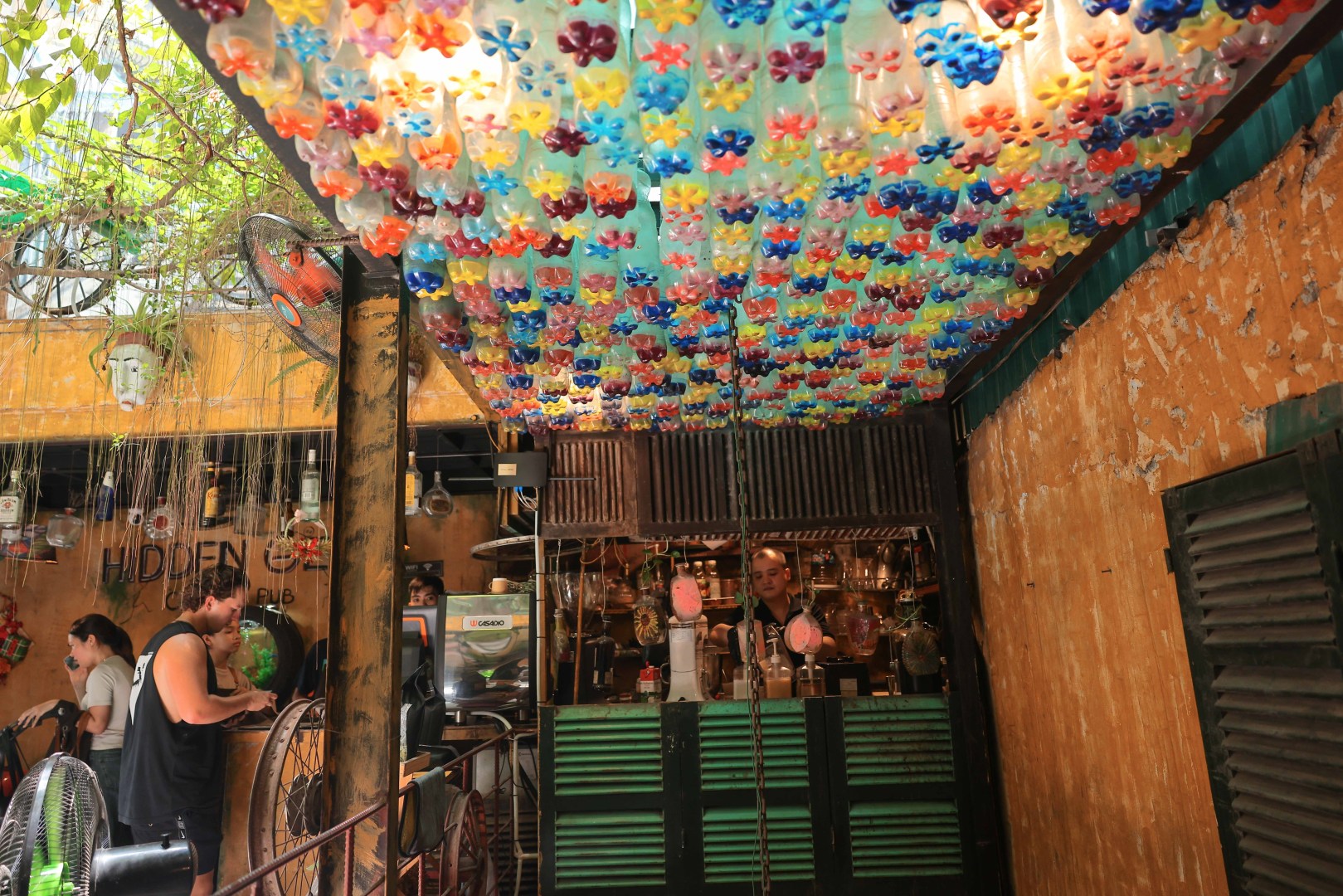
The booming e-commerce sector, covering online retail and food delivery,
is discharging an “alarming level” of single-use packaging and plastic waste.






The sector is considered a pioneer in the digital economy and an economic driver, with its value estimated at some 17.3 billion USD last year, according to a report by the Vietnam E-Commerce Association (VECOM).
The report said around 332,000 tonnes of packaging was consumed in e-commerce last year, of which 171,000 tonnes are plastic. By 2030, plastic waste in the sector is predicted to amount to 800,000 tonnes.

The report and other research activities by the association were conducted within the project on reducing marine plastic waste, financed by the World Wide Fund for Nature in Vietnam (WWF-Vietnam).
“Carton boxes and paper or plastic bags are used the most by online sellers to pack parcels”.
Nguyen Thanh Hung, from the VECOM’s Advisory Council



The research team found that nylon bags are used on all online platforms, whether they are websites, e-commerce platforms or social networks. E-commerce activities in Vietnam are mainly concentrated in coastal and riverside localities such as Ho Chi Minh City, Hanoi, Hai Phong, Da Nang, Hue, Can Tho and Nha Trang.
Most e-commerce plastic waste is not separated from household trash, resulting in the accumulation of garbage dumped into the ocean.


The report pointed out that plastic packaging is cheaper and has lower shipping fees thanks to its light weight. Products are often overpacked to reduce possible damage during the transport process. In addition, Vietnam does not have regulations on environmental protection standards of packaging in e-commerce. The rate of recycling of packaging in e-commerce is very modest.
“Waste generated from e-commerce must have increased at least five-fold compared to traditional commerce”.
Nguyen Huu Tuan, from the Vietnam E-commerce and Digital Economy Agency
under the Ministry of Industry and Trade.
The Ministry of Natural Resources and Environment warned that Vietnam’s plastic consumption index per capita has increased very rapidly, from 3.8kg per person in 1990, to 41kg in 2015, and about 54kg at present.
Experts said rising plastic use leads to waste pile-up, which poses a high risk of white pollution, and puts more pressure on the environmental management system.

Path towards green
e-commerce
However, more and more consumers are aware of environmental issues and are avoiding products and services that have a negative impact on the environment.
With the positive signs, green consumption will soon become popular, prompting e-commerce to go green, with recyclable and reusable packaging made of rapidly renewable materials.





Article 64 of the Government’s Decree No. 08/2022 that details a number of articles of the 2020 Law on Environmental Protection stipulates that:
“From January 1, 2026, the production and import of poorly degradable plastic bags of 50cm x 50cm or smaller and 50μm thick or less shall be prohibited. However, this excludes cases where the bags are intended
for export or packaging of other goods.”




Organisations and individuals that produce and import single-use plastic products and non-biodegradable plastic packaging must bear the responsibility for recycling and handling according to provisions of this decree.
After December 31, 2030, Vietnam will ban the manufacture and import of single-use plastic products, poorly degradable plastic packaging materials (including poorly degradable plastic bags, and plastic foam containers for food packing), and products containing microplastics.
To protect the environment and reduce plastic waste, the VECOM suggested the building of a set of criteria guiding the evaluation and identification of green e-commerce businesses and sustainable e-commerce models.
It also stressed the need to develop and encourage the application of packaging standards for e-commerce, prioritising the use of recyclable materials or biodegradable packaging products, while urging transport companies to use environmentally friendly means.
In particular, online consumers should be encouraged to buy products from environmentally friendly manufacturers and transporters, or those with green and eco labels.
The association said it plans to coordinate with other agencies and organisations to promote the engagement of e-commerce platforms and express delivery businesses in the communications work, thus raising social responsibility associated with environmental protection.
E-commerce students will also be encouraged to participate in scientific research on environmental protection in digital business.
Currently, Vietnam is participating in negotiations for a global agreement on plastic pollution, expected to be ratified by UN member countries by the end of 2024. The deal will have a comprehensive impact, not only on reducing plastic pollution but also on all socio-economic activities, including e-commerce./.
